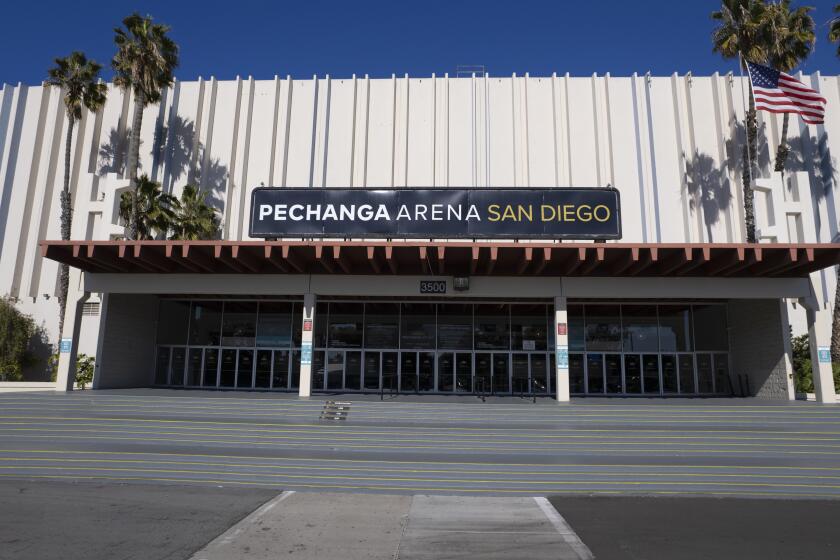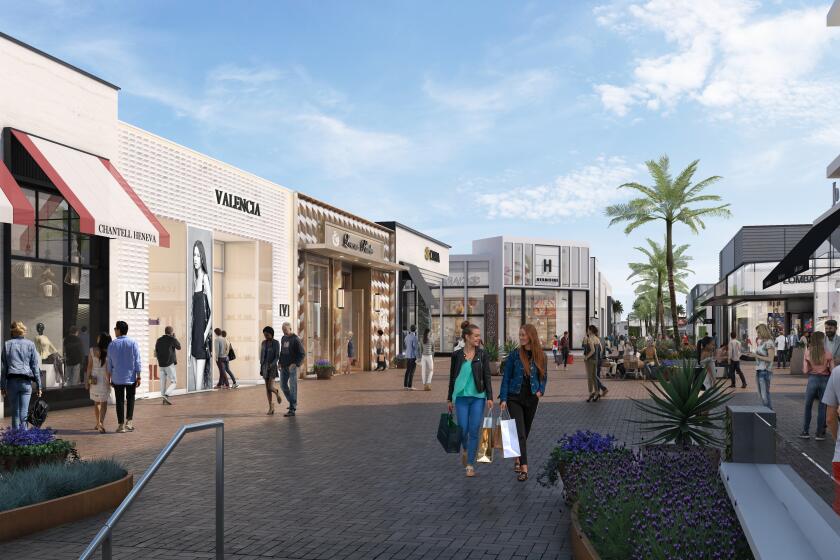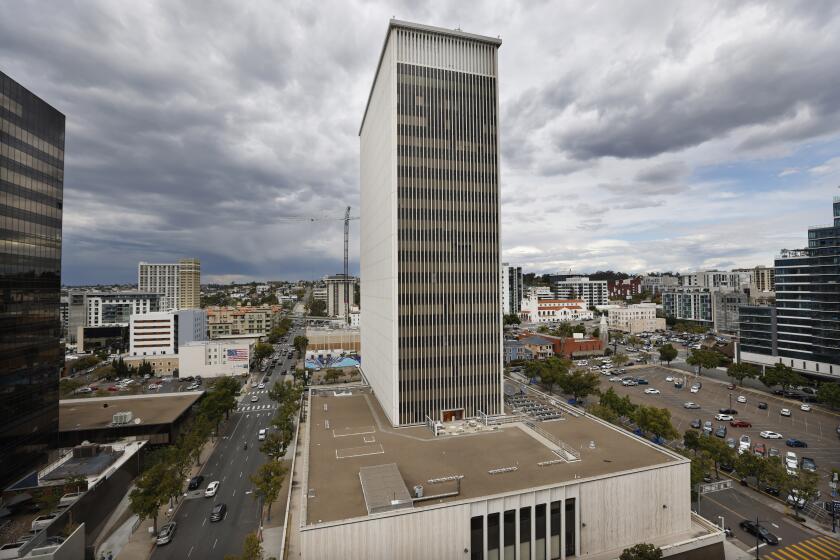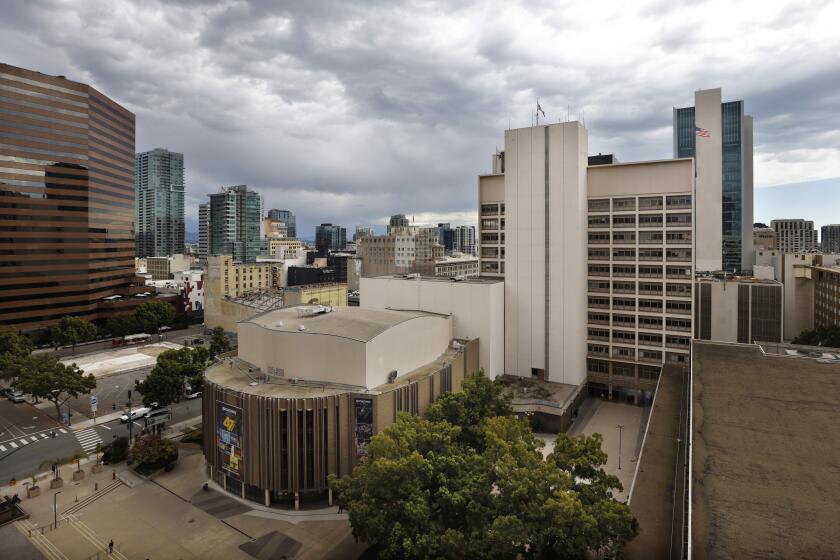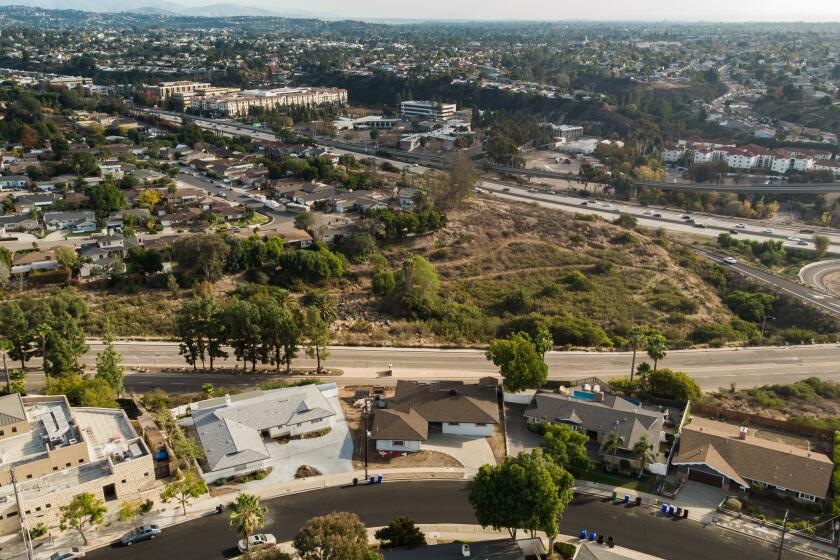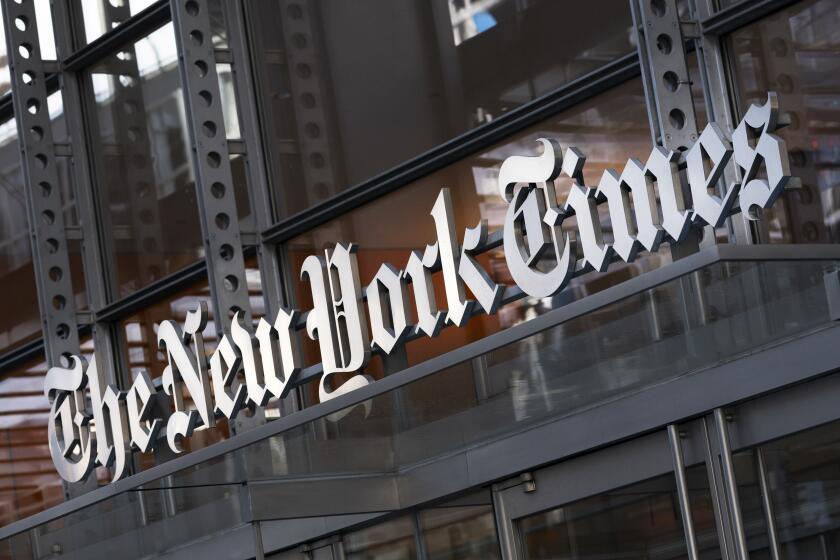San Diego selects Midway Rising to redevelop sports arena site
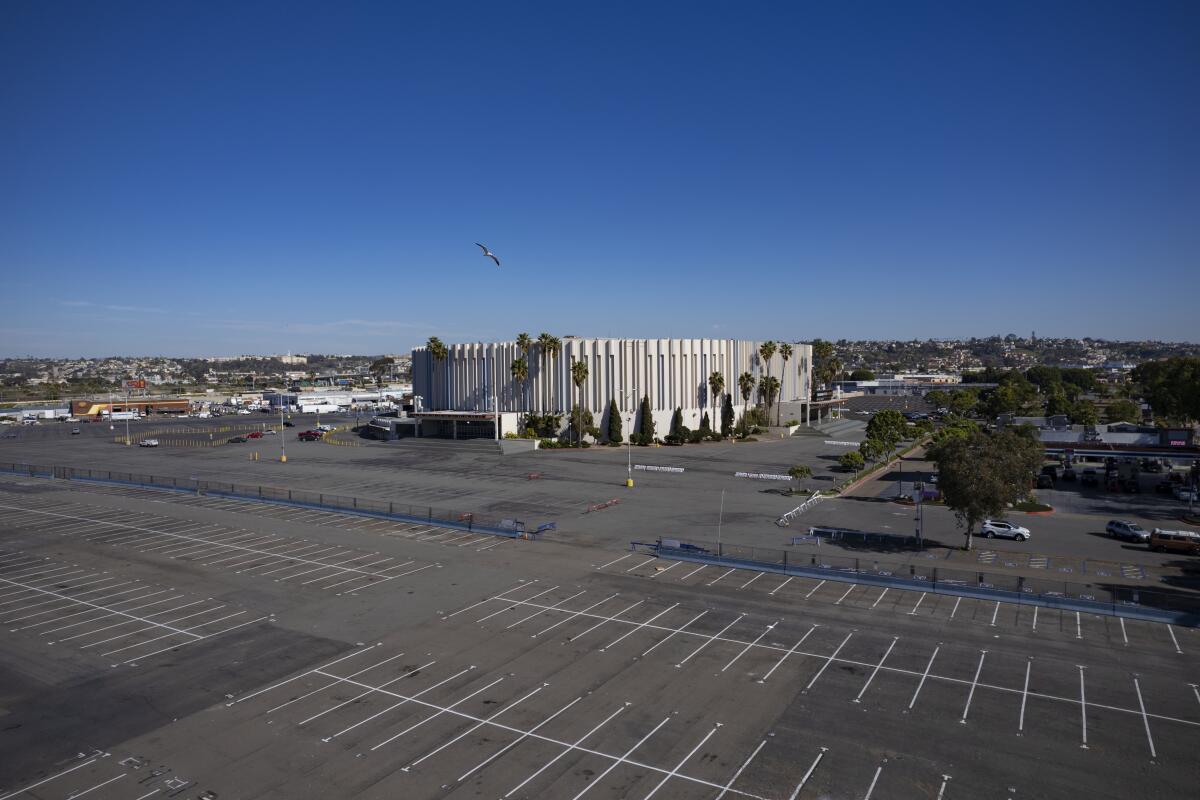
Council selection ends a nearly year-long competition and starts a new phase in the effort to remake the site.
In the real estate competition to lease and redo the city’s 48-acre sports arena site, San Diego has selected as its winner the development team proposing the most affordable residential units.
City Council members voted 7-1 on Tuesday to select Midway Rising. The vote came after a sometimes-heated discussion that put the team, its partners and even potential subcontractors under the microscope on a variety of topics, including allegations of deceptive labor practices.
This story is for subscribers
We offer subscribers exclusive access to our best journalism.
Thank you for your support.
“Today’s approval is a major step forward in our goal of revitalizing the Midway District with much-needed affordable homes along with a world-class entertainment venue and great amenities for the community,” San Diego Mayor Todd Gloria said in a statement. “The Midway Rising team has not only the most compelling vision for re-using the site, but also the experience and financial wherewithal to execute.”
The council action ends a nearly year-long contest and starts a new phase in the effort to remake the Midway District property. The city and the team will have, once an exclusive negotiating agreement is signed, around two years to hammer out lease and development terms. Staff will be required to provide quarterly updates to the council and include the independent budget analyst’s office in discussions.
Midway Rising includes market-rate housing developer Zephyr, sports-and-entertainment venue operator Legends and affordable-housing builder Chelsea Investment Corp. The team is proposing to develop the city’s sports arena holdings with 2,000 units deed-restricted for low- and very-low-income families at an average affordability of 48 percent of the area median income.
The group’s plan also calls for 250 middle-income units, 2,000 market-rate units, a new 16,000-seat arena, a 200-room hotel and 4,500 parking spaces. The project includes 20 acres of plaza and park space, including 4.2 acres of rooftop parks.
“The Midway Rising team is grateful to the San Diego City Council for voting to move forward with Mayor Gloria and city staff’s recommendation,” said Bill Rhoda, a project development executive with Legends. “We are committed to delivering an inclusive, affordable and economically vibrant community that includes 2,000 affordable homes, 20 plus acres of new parks, 8,500 jobs for working families, and a modern sports arena for all San Diegans.”
This is San Diego’s second attempt to offload its sports arena site. The first effort ran afoul of California’s newly amended Surplus Land Act. The law is designed to maximize affordable housing on land no longer needed by municipalities. It requires local agencies to give “first priority” to the bidder proposing the highest number of residential units deed-restricted for families making 80 percent or less of the area median income.
“Restarting the prior administration’s sports arena process was a setback for the city, but today’s selection of the Midway Rising team results in a monumental step towards a revitalized Midway District that San Diegans will enjoy living, working and playing in for decades to come,” said Penny Maus, who heads the city’s real estate department.
The current real estate competition started in earnest in October, when the city put its Midway District property back on the market with a “notice of availability,” as required by the statute.
San Diego received seven responses during the required 60-day notice period, although two were deemed not responsive. In December, the city began a 90-day, “good faith” negotiation period with the five remaining teams, as was also required by the law. In May, City Council members narrowed the field of contenders to three teams: Midway Rising, HomeTownSD and Midway Village+.
The real estate department then entered into a due diligence phase and used outside real estate consultant Jones Lange LaSalle to vet the teams’ financial models and capabilities. Last month, Midway Rising was recommended for final selection by staff and the mayor.
The recommendation for selection, which was driven in large part by Midway Rising’s affordable housing proposal, came under fire at Tuesday’s council meeting with some members of the public urging elected leaders to slow down the process and avoid the pitfalls of prior transactions.
“Are you sure you have fully reviewed this deal? Do you have the skills and real estate sophistication to keep the city from being the patsy in yet another real estate deal?” said David Moty, a Talmadge resident. “Controversy is starting to brew around this, and real estate is not the city’s strong suit. So be sure.”
The comments reference a number of allegations in recent days leveled against Zephyr and its CEO Brad Termini, namely that the executive’s political contributions to Gloria give the appearance of impropriety. The firm, which will be responsible for building 2,000 market-rate units on the sports arena site, has also been criticized for limited experience with large-scale projects.
Team members from Midway Rising’s now-eliminated rivals also sought to call attention to perceived flaws in the winning bid.
“I’m perplexed why we are not asking tough questions regarding the arena proposals. A new 16,000-seat arena with parking (and) 4,000 new residential units does not fit on this site. This is putting 20 pounds of stuff in a 10-pound bag that will crush the Midway District and the surrounding communities,” said Erik Judson, who is CEO of JMI Sports and is part of the HomeTownSD team.
Representatives from San Diego’s carpenters’ union also accused Midway Rising’s affordable-housing builder Chelsea of working with drywall subcontractors that use labor brokers and pay workers under the table. Union members doubled down on the allegations, which first surfaced at last week’s committee meeting.
Jesse Garcia, who oversees the Local 619 union, an affiliate of the Southwest Regional Council of Carpenters, said that Chelsea works with drywall subcontractors with “a track record of exploiting workers.”
“This council should not enable Chelsea,” he said.
Councilmember Raul Campillo, the lone vote against against Midway Rising’s selection, took issue with the alleged practices, but also voiced concerns about Legends’ arena development experience, the project’s financial unknowns and the staff’s vetting of the plan.
“I want housing, and I want affordable housing as fast as possible,” he said. “But I need to be able to believe the proposal that gets selected.”
Campillo was, however, overruled by his colleagues who voted in favor of moving forward with Midway Rising after the developer made a number of promises, including a firm commitment to deliver 2,000 affordable units.
“Today we are selecting one team to begin the negotiations,” said Councilmember Joe LaCava, stressing the council’s continued oversight of the future transaction. “This is not a pretty package wrapped up with a nice bow on it. (It is not) a yay or nay (vote) that will commit us forever.”
Updates
6:41 p.m. Sept. 13, 2022: This story was updated with a quote from the mayor and additional information.
Get U-T Business in your inbox on Mondays
Get ready for your week with the week’s top business stories from San Diego and California, in your inbox Monday mornings.
You may occasionally receive promotional content from the San Diego Union-Tribune.

